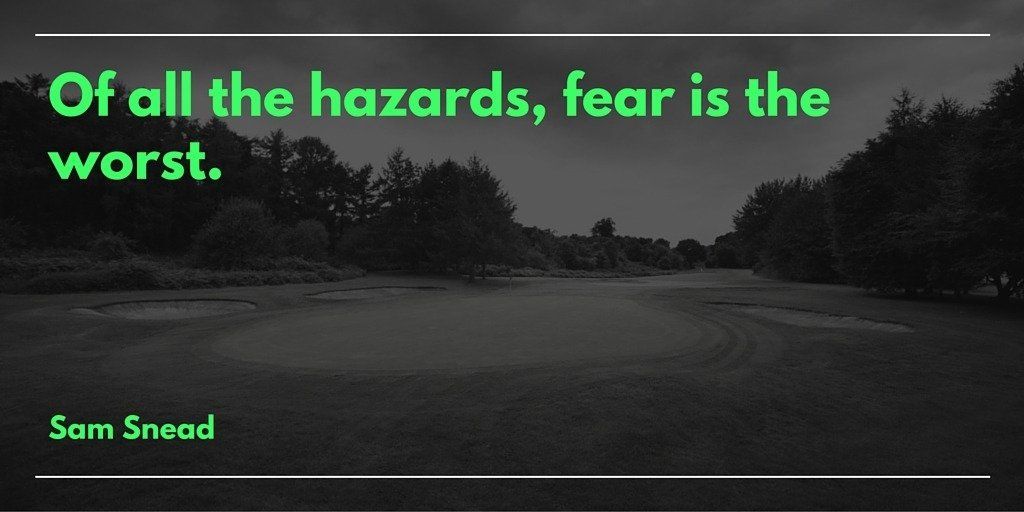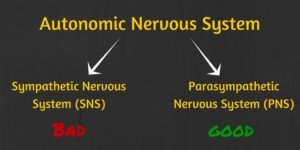
Despite being played in such serene circumstances, golf can be an extremely stressful game.
The words fear and anxiety come to mind when describing common emotions that golfers feel before they are about to hit a shot.
Anger and frustration are two other words that come to mind after you hit a poor shot.
All of these emotions are detrimental to your game. Playing your best golf will come when you are calm and your body is feeling relaxed. It's almost impossible to make a smooth putting stroke, pitch the ball properly, or make a fluid swing when your body is tense and your heart is racing.
There's actually a simple way to help solve all of this, and keep these emotions from harming your game.
What's going on in your body
It helps to understand what happens to your body when you get stressed or anxious, and what you can do to fix it.
All of our basic functions, such as how we release hormones in stressful situations, are regulated by our autonomic nervous system. This system is broken down into two parts, the sympathetic nervous system, and the parasympathetic nervous system.

The sympathetic nervous system (SNS) is where problems occur for golfers. The SNS is responsible for initiating the "fight or flight" response in your body. When you are confronted with stressful situations, such as an 8 footer for par or a difficult tee shot, your SNS might get involuntarily activated.
Your heart begins to beat faster, your blood pressure increases, and your mind begins to race. Worst of all, your decision making is impaired.
This part of our nervous system used to protect us from imminent danger back in the days of the cavemen when an animal would attack us, and now we can thank it for being terrified of a small white ball.
Simply put, when your SNS is activated it inhibits your ability to focus and execute the shot.
Learn to activate the other system
What you want to do in these situations is learn how to activate your parasympathetic nervous system.
The PNS is responsible for allowing your body to calm down and release all of the tension you are feeling. They might not know it, but golfers who are able to remain calm during their round when facing the biggest shots are skilled at activating their parasympathetic nervous system.
The key to activating the PNS is sending a signal to your vagus nerve. This is the nerve that is responsible for turning on the PNS switch, and there's actually an easy trick to get it going.
Vagus Baby!
Controlling your breathing is the solution.
The way to activate your Vagus nerve and switch from your tense state to a more relaxed one is to start controlled, deep breathing.
It's as simple as inhaling very slowly through your nose and exhaling just as slowly through your mouth. After doing this for a brief period of time your body starts to get the message, and you will send a signal to your nervous system to activate your calming hormones that will slow your heart rate down and relax your muscles.
During a round of golf there are so many situations that get us tense. We don't realize it at the time, but our hearts are racing, and we are breathing way too quickly. The next time you are playing, and you start to feel these negative emotions, try to start doing these breathing exercises.
You will be shocked at how effective they can be.
As a side note, they can also be tremendously beneficial in your life outside of the course. Stress and anxiety can follow us almost everywhere; use your breathing to help combat it!
Bonus Content:Be sure to check out my complete guide to putting.
We care about the protection of your data Read our Privacy Policy